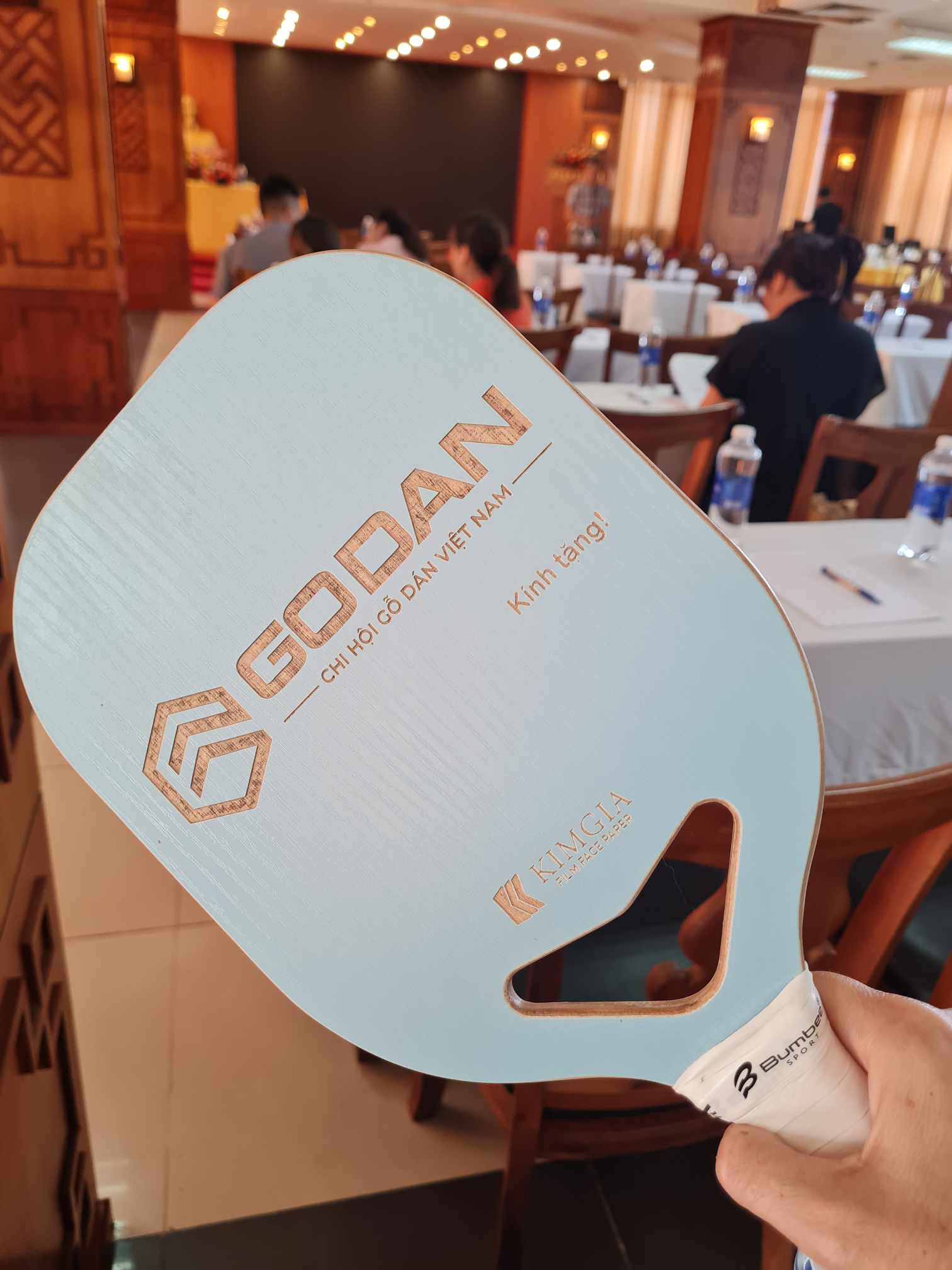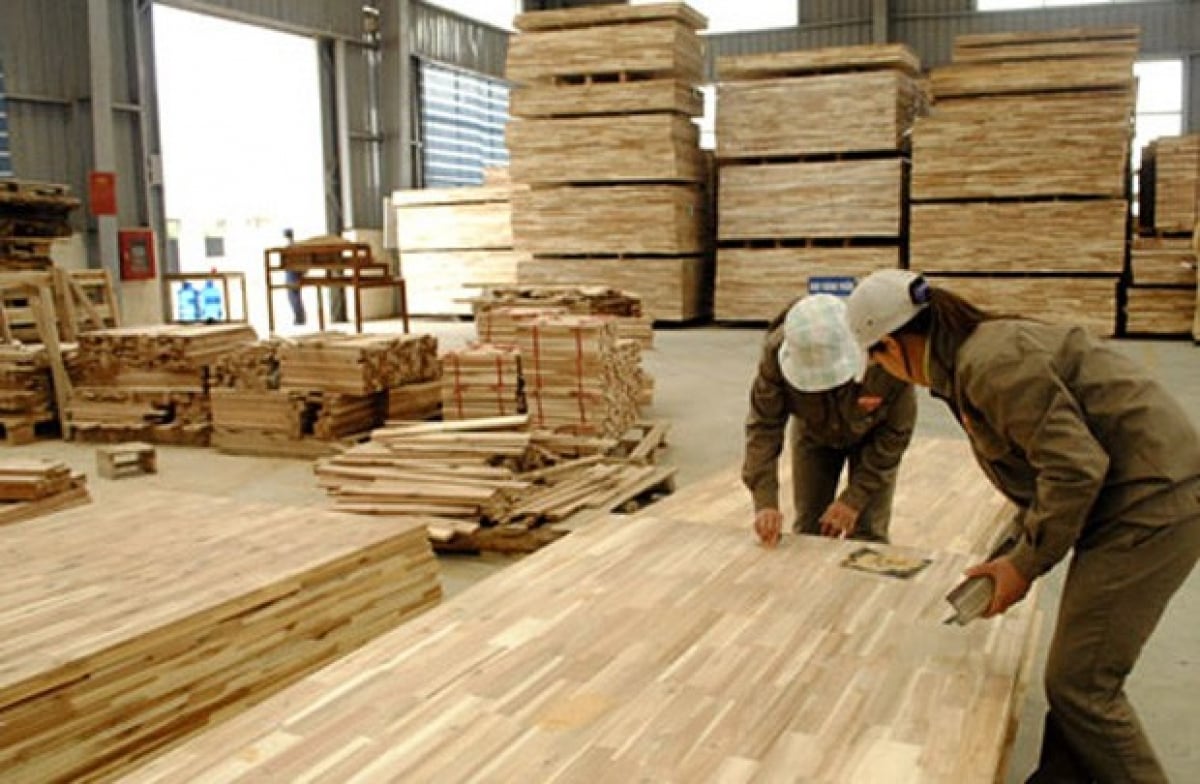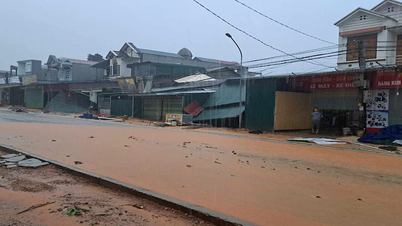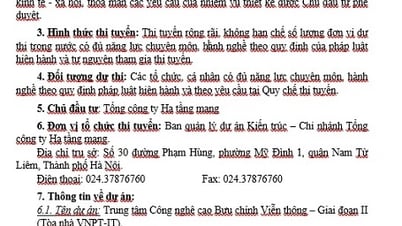Mr. Trinh Xuan Duong, Director of Ke Go Company Limited, Chairman of the Plywood Association (Vietnam Timber and Forest Products Association) said that enterprises in the plywood industry are having a spectacular production transformation, launching many new application products, even following the "trend" such as pickleball rackets.
Exports of plywood, pellets and wood chips increased
In the context of rising sea freight rates, businesses are facing anti-dumping investigations in some markets such as the US and South Korea, but according to Mr. Trinh Xuan Duong, Director of Ke Go Company Limited, Chairman of the Vietnam Plywood Association (Vietnam Timber and Forest Products Association), the export market for plywood, pellets, and wood chips in 2024 will still grow by 25-30%. In particular, Vietnam's plywood market is mainly the US, Japan, and Malaysia; pellets are mainly exported to Japan and South Korea while the main market for Vietnam's wood chips is China.
"This growth is due to a shift in demand. China is the world's largest plywood producer, but the market is currently shifting to Vietnam thanks to its advantages in raw materials and cheaper production costs," said Mr. Duong.
Statistics from the General Department of Customs show that in the first 8 months of 2024, wood chip exports reached 1.8 billion USD, up 24.4% over the same period in 2023; wood and flooring reached 1.3 billion USD, up 17.3%; wood pellets reached 499.8 million USD, up 12%;...
Notably, according to Mr. Duong, businesses in the Vietnam Plywood Association are having a strong shift in product structure with the launch of many products with practical applications in life, even "hot trend" products such as Pickleball rackets, helping many businesses affirm their position in the market.

Pickleball racket, a very "trendy" product of the Vietnam Plywood Association businesses. Photo: KN
The growth of the plywood industry has made a very important contribution to the growth of the wood industry since the beginning of 2024. According to statistics from the General Department of Customs, in September 2024, the export value of wood and wood products of Vietnam reached 1.25 billion USD.
In the first 9 months of 2024, the export value of wood and wood products reached 11.7 billion USD, an increase of 21.5% over the same period in 2023. Of which, the export value of wood products reached 8.04 billion USD, an increase of 23.7% over the same period in 2023.
Regarding export markets, export value to major markets maintained positive growth momentum in the first 9 months of 2024, with only exports to the Korean market decreasing slightly. Leading in export value in the first 9 months of 2024 was the US market with 6.5 billion USD, up 25.9% over the same period in 2023; followed by the Chinese market with 1.5 billion USD, up 25.4%; Japan with 1.26 billion USD, up 0.1%; Korea with 574.6 million USD, down 1.5%...
Classification of wood processing and exporting enterprises to meet international integration regulations
One of the issues that wood industry enterprises are currently concerned about is the classification of wood processing and exporting enterprises, because Decree 102/2020/ND-CP on the Vietnam Timber Legality Assurance System and Circular 21/2021/TT-BNNPTNT dated December 29, 2021 stipulate the classification of wood processing and exporting enterprises, stipulating that the subject of enterprise classification is an enterprise that has processing activities at the same time as wood export activities.
In addition, Decree 120/2024/ND-CP of the Government amending and supplementing a number of articles of Decree 102/2020/ND-CP dated September 1, 2020 of the Government regulating the Vietnam Timber Legality Assurance System has expanded the scope of enterprise classification to include: enterprises planting, exploiting and supplying planted forest timber, processing, importing and exporting timber. The Decree takes effect from November 15, 2024.

Wood flooring exports reached 1.3 billion USD in the first 8 months of 2024, up 17.3% over the same period. Photo: Contributor.
Regarding the concerns of enterprises, Ms. Nguyen Tuong Van - VPA/FLEGT expert (forestry law enforcement, forest governance and forest product trade) said: Classifying enterprises has many benefits. In addition to helping ensure the legality of wood and wood products, enterprises also have more convenience in completing customs procedures when exporting products.
"Business classification is inevitable when countries importing wood and wood products from Vietnam have issued increasingly strict legal regulations on legal wood. For example, the US has the Lacey Act, the EU has the EU Timber Regulation (EUTR) and the EU Deforestation Reduction Regulation (EUDR), Australia has the Law against illegal logging, Japan has the Clean Wood Law, South Korea has the Law on Sustainable Wood Use, and the UK has the Regulation on the Use of Wood and Wood Products," said Ms. Van.
Along with that, Vietnam has signed the Voluntary Partnership Agreement on Forest Law Enforcement, Governance and Trade (VPA/FLEGT) with the EU; the Agreement on Combating Illegal Logging and Trade with the United States to commit to eliminating illegal timber from the supply chain. The EU and the United States require Vietnamese authorities to verify each shipment before exporting to these markets to ensure that the wood is legal.
It is estimated that Vietnam exports millions of shipments of wood and wood products every year. Vietnamese authorities are unable to verify each shipment of wood and wood products before exporting them. This will affect the business of wood processing and exporting enterprises.
"Therefore, instead of verifying each batch of exported timber and timber products, Vietnam will switch to verifying the compliance of enterprises in the supply chain to ensure the feasibility and effectiveness of the Vietnam Timber Legality Assurance System (VNTLAS). This will not affect the business process of enterprises," said Ms. Van.
Mr. Trinh Xuan Duong also assessed that with nearly 1,700 enterprises exporting wood and wood products, evaluating enterprises will be faster than evaluating each container of exported goods. The classification of enterprises also assesses the reputation of the enterprise because the good or bad products depend on the enterprise, not the product.
However, Mr. Trinh Xuan Duong also suggested that the assessment and classification of enterprises should have a roadmap, especially for small import markets, markets that do not have requirements for classifying enterprises or legal wood. Or the assessment should also be applied to the scale of each type of enterprise, because most of the enterprises and plywood production units come from craft villages. It is very difficult for them to immediately meet many high standards such as: fire prevention and fighting, labor, occupational safety and hygiene, insurance, etc.
Source: https://danviet.vn/khong-chi-ban-san-pham-thu-ty-do-doanh-nghiep-nganh-go-dan-viet-nam-con-lam-du-san-pham-co-ca-vot-pickleball-20241101175343313.htm


![[Photo] Vietnamese shipbuilding with the aspiration to reach out to the ocean](https://vphoto.vietnam.vn/thumb/1200x675/vietnam/resource/IMAGE/2025/5/20/24ecf0ba837b4c2a8b73853b45e40aa7)



![[Photo] Award ceremony for works on studying and following President Ho Chi Minh](https://vphoto.vietnam.vn/thumb/1200x675/vietnam/resource/IMAGE/2025/5/20/a08ce9374fa544c292cca22d4424e6c0)




























































































![[VIDEO] - Enhancing the value of Quang Nam OCOP products through trade connections](https://vphoto.vietnam.vn/thumb/402x226/vietnam/resource/IMAGE/2025/5/17/5be5b5fff1f14914986fad159097a677)
Comment (0)